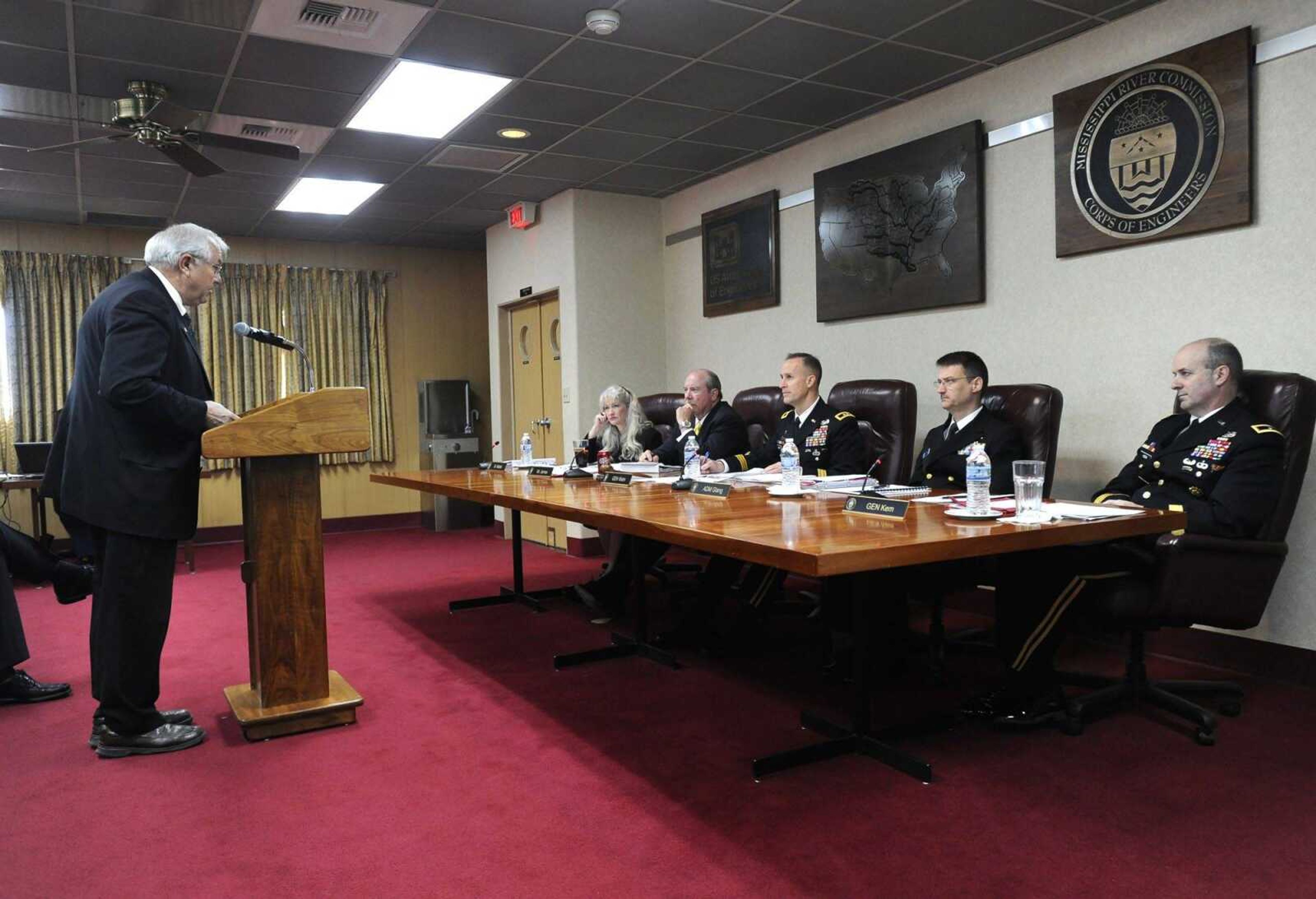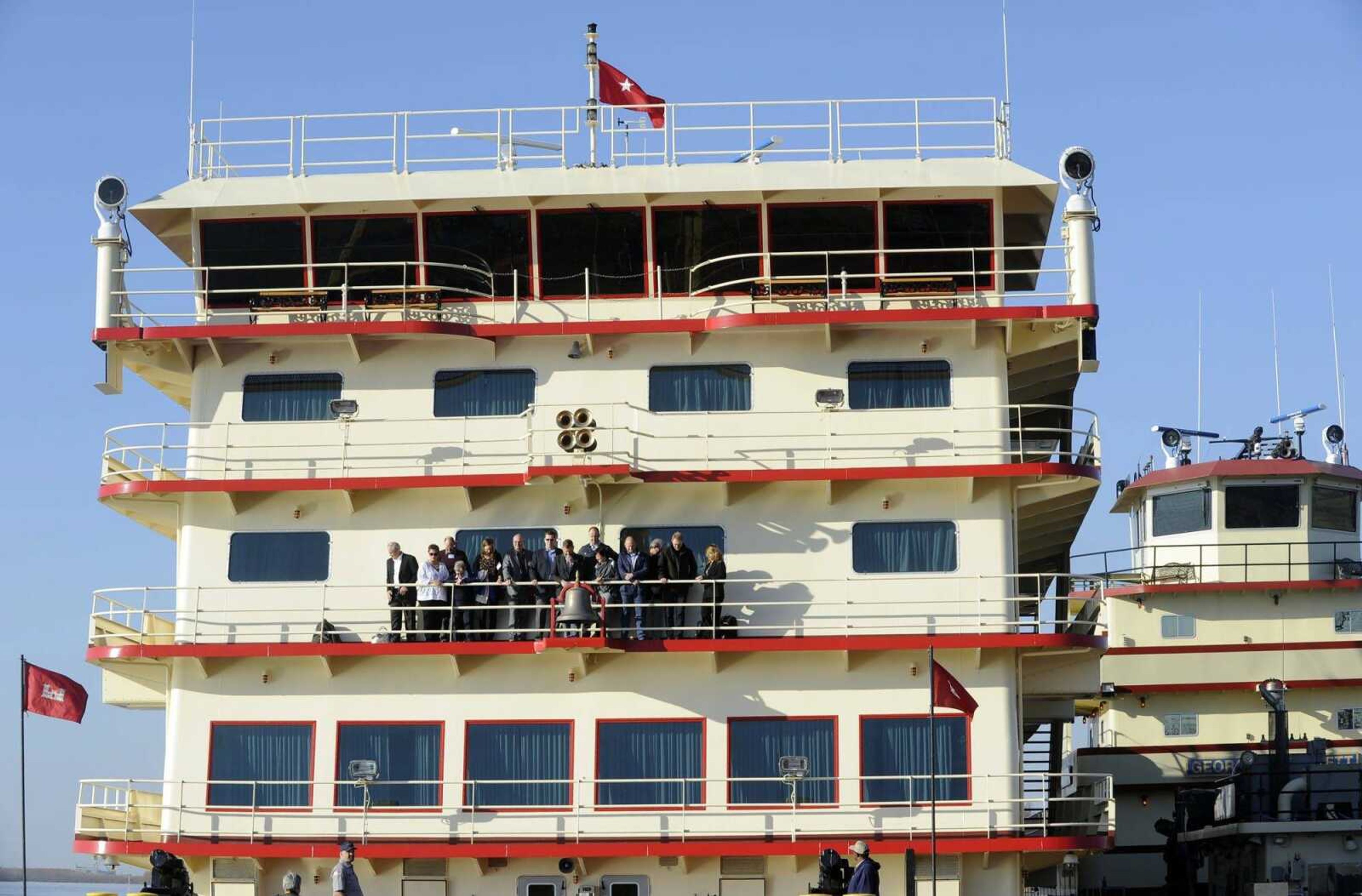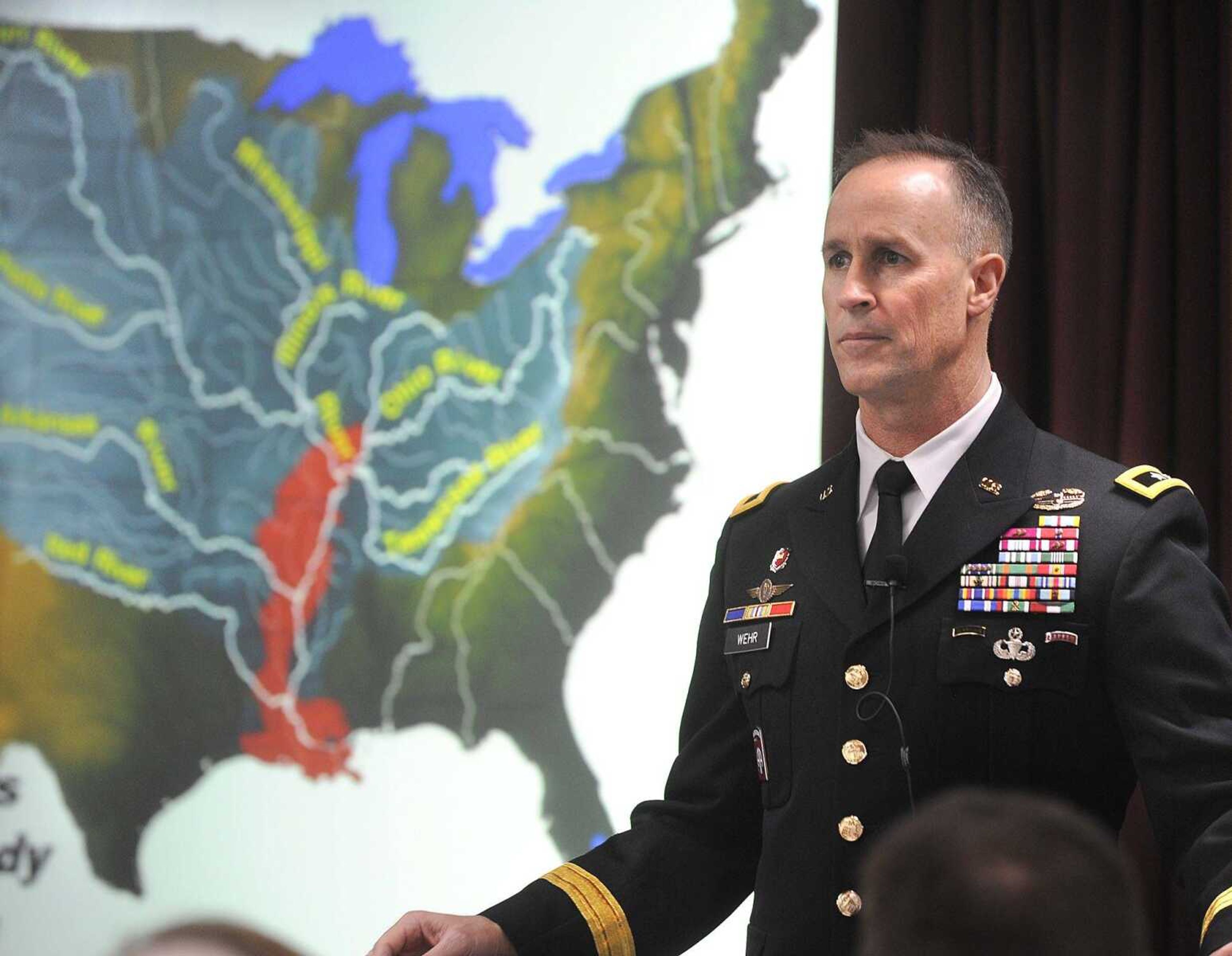Flood-control project finds supporters, few foes at meeting
NEW MADRID, Mo. -- The St. Johns Bayou and New Madrid Floodway project again was described by members of the Mississippi River Commission as a thorn in the side of Southeast Missouri stakeholders, who spoke Monday at a public hearing aboard the M/V Mississippi at the New Madrid riverfront...
NEW MADRID, Mo. -- The St. Johns Bayou and New Madrid Floodway project again was described by members of the Mississippi River Commission as a thorn in the side of Southeast Missouri stakeholders, who spoke Monday at a public hearing aboard the M/V Mississippi at the New Madrid riverfront.
Absent were speakers against the project during the commission's annual high-water inspection trip in which the commission, consisting of U.S. Army Corps of Engineers members and civilians, rides a large diesel towboat down the river to hold meetings.
Several people lamented the delay in closing a 1,500-foot gap in the levee system, drainage work and installation of pumping systems in areas of New Madrid, Mississippi and Scott counties, which the Corps designed in the 1950s to manage and decrease flooding in St. Johns Bayou and the New Madrid Floodway.
Proponents of the project, such as East Prairie, Missouri, Mayor Kevin Mainord, blame a decades-long delay for the project on government agencies and environmental groups. They oppose the project because of the potential they say it creates for environmental damage.
In the meantime, residents of East Prairie and those who live or farm the land near it suffer from the effects of backwater flooding, Mainord told the commission.

"Somewhere along the way, we have lost our sense of priorities," he said. "We have let environmental wackos and activists on the bench determine what is best for our lives and livelihood, and I, for one, am getting tired of it."
For several years in a row, local stakeholders have described their flood-related woes to the commission in hopes the Corps can expedite the project.
Not only those with environmental concerns are opposed.
Some people in areas of Southern Illinois, such as Cairo, don't want additional levees built on the Missouri side of the Mississippi River for fear it could exacerbate flooding in their communities.
Those interests have voiced their opinion to the Corps at previous meetings.

Mainord said too much attention has been paid to potential effects on wildlife in the Corps' required environmental impact statements for the project. Meanwhile, he said, not enough attention has been paid to people who live and work in the area and suffer economic damage when crops cannot be planted and stress when homes are threatened from backwater flooding.
A staff member for U.S. Rep. Jason Smith, R-Salem, also read a statement Monday on behalf of the congressman, who supports the project's completion.
Smith, said Darren Lingle, district director for Smith's office, believes the project is being "stymied and stonewalled by taxpayer-funded agencies" such as the Environmental Protection Agency and environmental groups with many members who don't live in Southeast Missouri.
Smith, in a later phone interview with the Southeast Missourian, said "... without a doubt, the main barriers are the environmentalists trying to push their agenda through the EPA and trying to get it through the Corps as well."
"In my opinion ... taxpayer-funded agencies should not have the final say in something that's been approved by Congress and has been funded by Congress. I just don't understand it," Smith said.
At least some of the delay in the project looks at this point to be behind the Corps. When several years ago there were complaints about the lack of a draft environmental impact statement available for public review, now the Corps has completed a final version and recently had the statement reviewed by an independent panel.
The panel, however, questioned in a recent report the claimed economic benefits that could come from the project -- and those benefits have been a hallmark of the support campaign, with promises of a combined cost-benefit ratio of 2-to-1 because of an increase in farming profits.
The estimated first cost of the project, according to the Corps, is just under $165 million, and the average annual cost to maintain it would be $7.3 million.
Average annual benefits are estimated at $15.5 million.
The panel reported the environmental impact statement did not contain documented proof of economic benefits from increased agricultural activity in the area.
They also said it could not assess the economic analyses and projections with information provided by the Corps and therefore could not confirm the combined cost-benefit ratio was greater than 1. The panel also found issues with the Corps' plans for preventing and mitigating effects on wildlife in the project area.
Smith said he believes the Corps' studies indicate the project ultimately will provide twice as much in economic benefit as it will to maintain the project.
"The economic benefit of this project is protecting the property, the livelihood and the safety of the people in the Bootheel of Missouri," he said.
The Mississippi Valley commanding general, Maj. Gen. Michael Wehr, also president of the commission, will choose to implement the plan or take no action. Wehr on Monday did not indicate a lean in either direction during a closing statement, but said the frustration he heard was "a key take-away" from the hearing.
eragan@semissourian.com
388-3632
Connect with the Southeast Missourian Newsroom:
For corrections to this story or other insights for the editor, click here. To submit a letter to the editor, click here. To learn about the Southeast Missourian’s AI Policy, click here.








